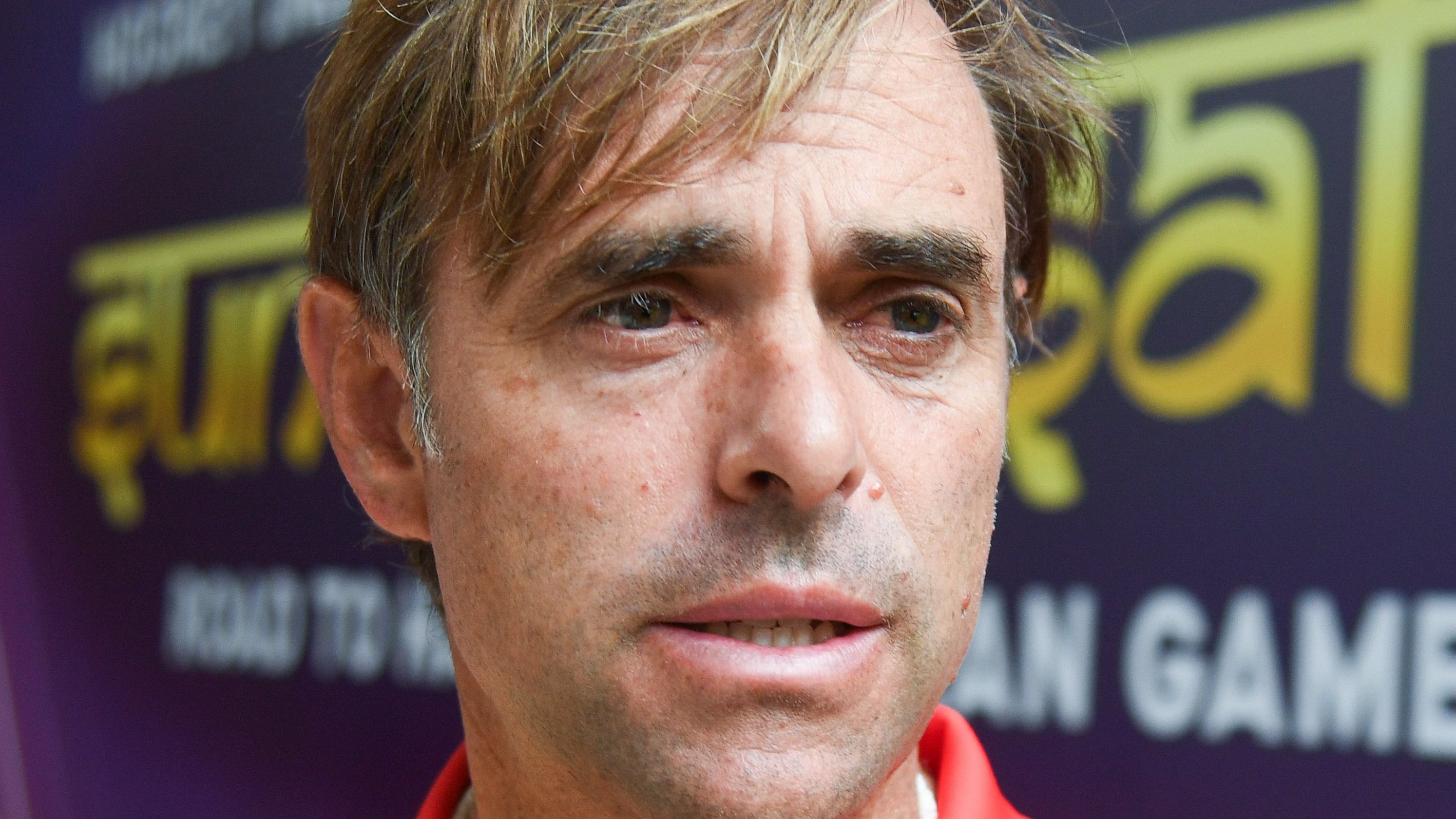
Indian hockey coach Craig Fulton believes new goalkeeper Krishan Pathak needs to be backed after having spent a long time as an understudy to the now retired PR Sreejesh.
Credit: DH File Photo
Bengaluru: Craig Fulton appeared a contented and relaxed man. Although the Indian men’s hockey team coach keeps his cards close to his chest during interviews, there was a perceptible change on Wednesday.
The straight face had been replaced by smile, and a sense of accomplishment was evident. And rightfully so as he engineered a bronze medal at the recently-concluded Paris Olympics that is rumoured to have earned him a contract extension till the LA Games in 2028. Right after announcing the squad for the Asian Champions Trophy, the South African spoke to DH about Paris, plans for the next Olympic cycle and PR Sreejesh’s successors. Excerpts...
You took over a team in crisis last year that finished ninth at the home World Cup. But in one year, you’ve won Asian Games gold and Paris Olympics bronze. How did you bring about this change?
It was quite interesting when I checked the history that India hadn't won the Asian Games for eight years. Before joining I thought that that has to be the number one priority. And to do that, we had to be fitter, stronger, faster, smarter, and do it consistently. So that was always the vision and the goal. Because once you set that up, then the players realise, okay, we haven't won this tournament consistently, and that is the biggest tournament to win, because once you do that, it opens up all the qualifications for you, especially the Olympics. But there was not much time. So it was a lot of hard work, like, don't get me wrong, because I didn't even know 50% of the guys' names. So it was just about getting my hands dirty, get the staff fully involved in what we're trying to do, and set a vision that was bright, that we needed to win the Asian Games. So it was a really good team effort.
A new Olympic cycle starts now with the first major events being the World Cup and the Asian Games in 2026. What are your plans?
I think obviously it's just setting yourself up to qualify, because you need to qualify first. But before we can qualify, we need to set a new squad, a new group, and take stock of what went really well in Paris. That's the number one thing to see from a team perspective, what we can create, what we have and what we lack. I think that'll take a bit of time, but the focus is to get the right squad together and have the right vision.
Talking about creating a squad, one area that needs to be filled up is goalkeeper following the retirement of PR Sreejesh. What are your thoughts on Krishan Pathak and Suraj Karkera who have been waiting in the wings?
If you look, Sree’s (Sreejesh) career has spanned 20 years, so he sat on the bench, and then he took over as number one. But then a lot of good things were done, sharing the load with Pathak. So he has experience. He has over 100 caps. When you first came in, you obviously knew Sree at best is going to be a part of your current cycle. A goalkeeper is always a long term investment. Did you feel the need to invest in Pathak? I would say Pathak, Suraj and Mohit (HS). Pawan (Malik) is another one because he’s played Pro League. He’ll be joining us next month. Having said that, it's time we need to support Pathak because, you know, he has been sitting in the wings for a while. This is his second Olympic campaign, sitting behind Sree and that's not easy. We back him, he's been our number two for a long time. He's won us games, won us shootouts. But because he sits behind Sree, he doesn't get any of the status or, you know, the accolades that Sree does. But now it's his opportunity.
In our previous interaction, you’ve always stressed on the importance of defence. In Paris, we saw a very attack-oriented Indian team. Did you deliberately hide that card to surprise teams or are we seeing a change in strategy?
Well, it was not something we showed a lot. It caught a lot of people by surprise. It was part of the plan. That's why I say we have to build a whole new way of playing, but then understand that it's based on good defence because even if you attack high and you turn over the ball, you need to be able to defend high, not only defend low. So it was all based on getting that mantra and philosophy around, okay, guys, we need to be able to defend in their half and in our arm. So when we high pressed we did that really well. But when the opponents had the ball, we defended deeply too.